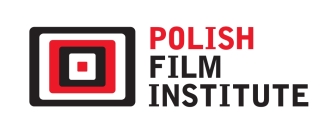Polish Science and Technology in Relation to the Invention of the Cinematograph and the Formation of Modern Film
Abstract
In his research, Jewsiewicki was interested in the relations between technology, science, and art. In the following text, the author looks for the origins of film inventions that grew out of the eternal human desire to capture life in moving images. Jewsiewicki reaches back to the 13th century and focuses on the optical devices of that time paying particular attention to the traces of inventions in Poland. He recalls Vitello (a Silesian monk, physicist, philosopher, researching optical and light phenomena in the context of visual illusions and the psychology of vision) as well as Nicolaus Copernicus. Jewsiewicki also mentions, among others, Jan Heweliusz and Christopher Scheiner, the astronomer associated with the city of Nysa, as well as Aleksy Sylvius – a designer of astronomical devices. Jewsiewicki writes about magic lanterns and Chinese shadows, as well as cameras for creating moving photographs. However, the article chiefly focuses on Kazimierz Prószyński, Jan Szczepanik and Władysław Starewicz, who, in Jewsiewicki’s opinion, significantly influenced the technical development of cinema. (Non-reviewed material; originally published in Kwartalnik Filmowy 1960, no. 40, pp. 59-71).
Keywords:
prehistory of cinema, archaeology of cinema, magic lantern, Kazimierz Prószyński, Jan Szczepanik, Władysław StarewiczReferences
Nie dotyczy / Not applicable
Google Scholar
Authors
Władysław Jewsiewickikwartalnik.filmowy@ispan.pl
Poland
A pioneer of research into Polish film history, cinema and cinema technology, educator. Born in 1910 in Mitava (Jelgava) in Latvia and died in 2004 in Warsaw. He received a master’s degree in philosophy at the Faculty of Humanities of Stefan Batory University in Vilnius, and graduated from the School of Political Science there in 1939. In March 1945, after being repatriated, he settled with his family in Łódź. At first, he was head of the technical office at the Film Polski State Enterprise, and from 1949 until his retirement, he lectured on the history of cinema at the Łódź Film School. In the first half of the 1950s, he served as vice-rector. Jewsiewicki defended his doctoral thesis Przemysł filmowy w Polsce w okresie międzywojennym [Film Industry in Poland in the Interwar Period] at the Faculty of Humanities at the University of Łódź in 1950. He obtained the title of full professor in 1982. Jewsiewicki is the author of numerous publications on film including: Przemysł filmowy w Polsce w okresie międzywojennym (1919-1939) [Film Industry in Poland in the Interwar Period (1919-1939)] (1951), Materiały do dziejów filmu w Polsce (cz. I i II) [Materials for the History of Film in Poland (Parts I and II)] (1952), Prehistoria filmu [Prehistory of Film] (1953), Kazimierz Prószyński – polski wynalazca filmowy [Kazimierz Prószyński – Polish Film Inventor] (1954), Historia powszechna kinematografii (cz. 1 i 2) [A General History of Cinematography (Parts 1 and 2)] (1956), Jan Szczepanik (1961), Polska kinematografia w okresie filmu niemego (1895-1929/30) [Polish Cinema in the Silent Film Period (1895-1929/30)] (1966), Polska kinematografia w okresie filmu dźwiękowego 1930-1939 [Polish Cinema in the Sound Film Period 1930-1939] (1967), Kronika kinematografii światowej (1895-1964) [A Chronicle of World Cinema (1895-1964)] (1967), Polscy filmowcy na frontach drugiej wojny światowej, [Polish Filmmakers on the Fronts of World War II] (1972), Kazimierz Prószyński (1974), Ezop XX wieku. Władysław Starewicz, pionier filmu lalkowego i sztuki filmowej [Aesop of the 20th Century. Władysław Starewicz, Pioneer of Puppet Film and Film Art] (1989).
Statistics
Abstract views: 68PDF downloads: 21 PDF downloads: 9
License
Copyright (c) 2024 Władysław Jewsiewicki

This work is licensed under a Creative Commons Attribution 4.0 International License.
The author grants the publisher a royalty-free non-exclusive licence (CC BY 4.0) to use the article in Kwartalnik Filmowy, retains full copyright, and agrees to identify the work as first having been published in Kwartalnik Filmowy should it be published or used again (download licence agreement). The journal is published under the CC BY 4.0 licence. By submitting an article, the author agrees to make it available under this licence.
In issues from 105-106 (2019) to 119 (2022) all articles were published under the CC BY-NC-ND 4.0 licence. During this period the authors granted a royalty-free non-exclusive licence (CC BY-ND 4.0) to use their article in „Kwartalnik Filmowy”, retained full copyright, and agreed to identify the work as first having been published in our journal should it be published or used again.











